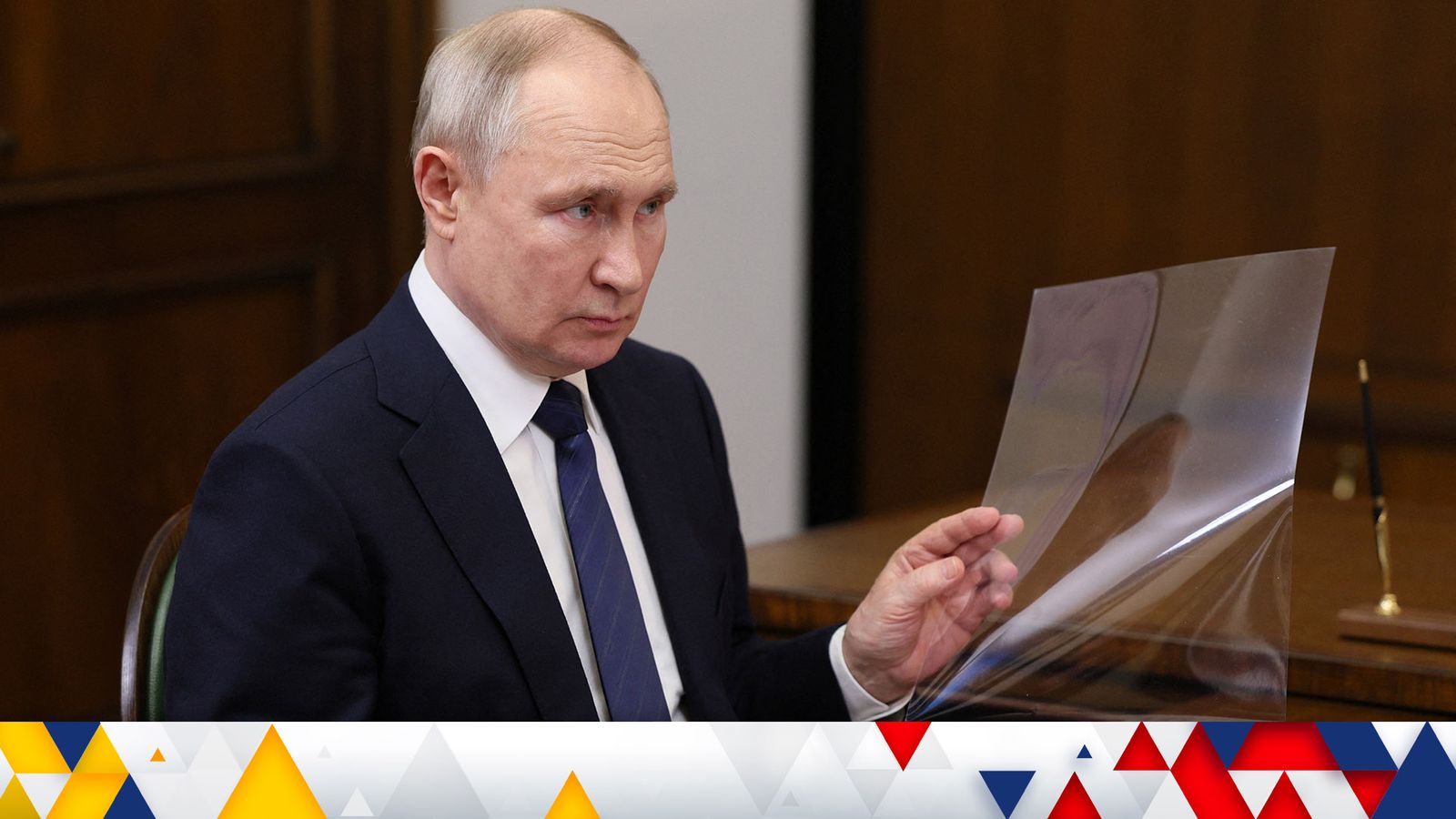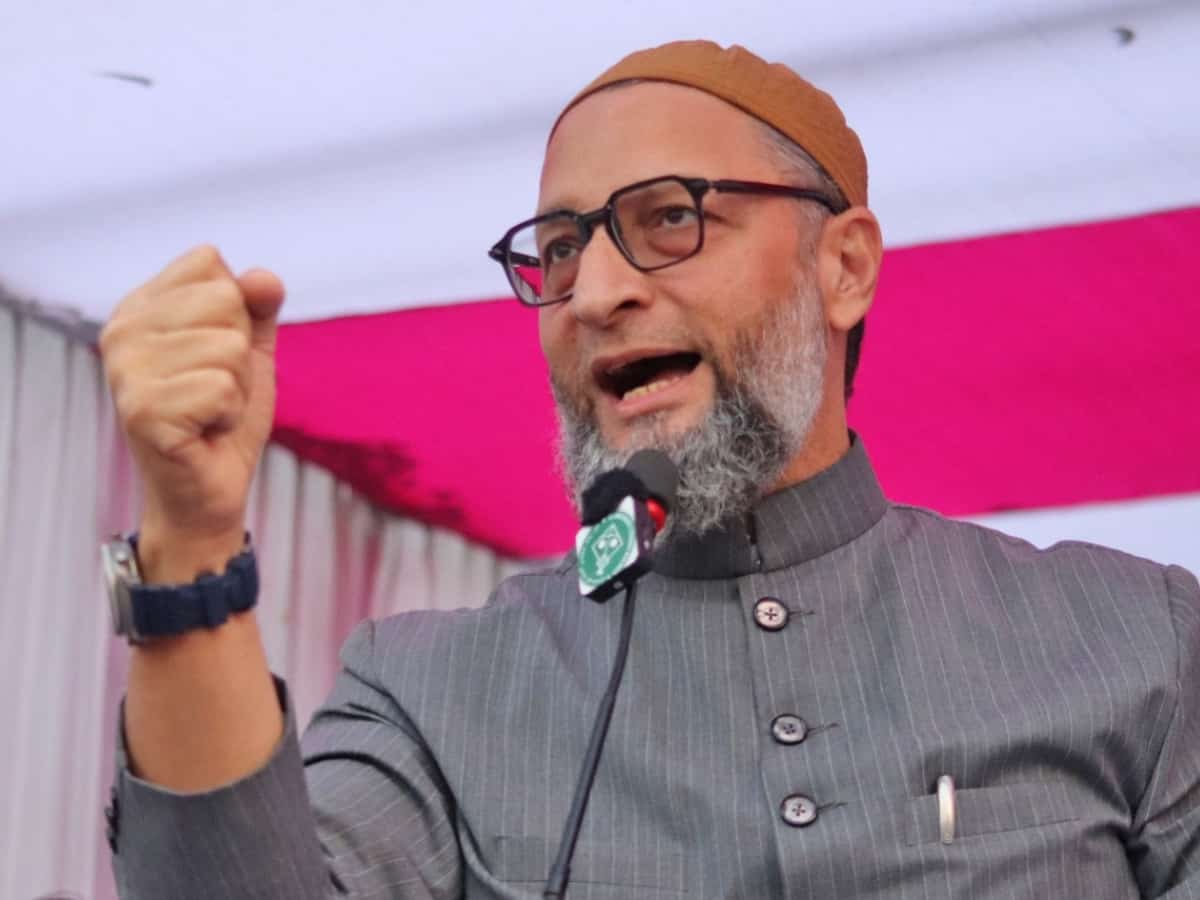Did Putin's Peace Talk Proposal Backfire? A Diplomatic Analysis

Table of Contents
The Proposal's Initial Aims and Objectives
Stated Goals vs. Underlying Motives
Putin's publicly stated goals in his peace talk proposal ostensibly centered around achieving a ceasefire and securing legally binding security guarantees for Russia. However, analyzing his statements alongside Russia's actions suggests a more complex picture.
- Stated Goals: A cessation of hostilities, the withdrawal of Ukrainian forces from disputed territories, recognition of Russia's sovereignty claims, and the establishment of neutral, demilitarized zones.
- Underlying Motives: Consolidating territorial gains achieved through military action, weakening Ukraine's military capabilities, hindering its integration with NATO, and ultimately enhancing Russia's geopolitical influence in the region.
These underlying motives are supported by previous Russian diplomatic maneuvers and statements preceding the proposal, suggesting a strategic calculation beyond mere peacemaking. Putin's speeches frequently emphasized NATO expansion as an existential threat to Russia, a narrative framing the Ukraine conflict within a broader struggle for regional dominance.
Target Audience and Intended Impact
The primary intended recipients of Putin's peace talk proposal were clearly Ukraine and the West. Putin likely anticipated several outcomes:
- Ukraine: A fracturing of Ukrainian resolve, leading to acceptance of unfavorable terms and a potential surrender of territory.
- The West: A division within the Western alliance, potentially leading to reduced support for Ukraine and an easing of sanctions on Russia.
Putin likely hoped a successful proposal would present him as a peacemaker, restoring Russia's international standing while solidifying territorial gains. His past experiences in diplomatic negotiations, particularly his engagement with the Minsk agreements, might have informed his expectations.
International Response and its Implications
Western Allies' Reactions
The response from key Western nations was swift and largely unified in its rejection of Putin's proposal.
- US Response: The US and its allies immediately dismissed the proposal as a cynical attempt to legitimize Russia's aggression and consolidate territorial gains. Increased military aid to Ukraine was pledged.
- EU Response: The European Union expressed strong support for Ukraine's territorial integrity and sovereignty, condemning Russia's actions and maintaining sanctions.
- UK Response: The UK government echoed similar sentiments, highlighting the proposal as a non-starter and offering steadfast support for Ukraine.
Ukrainian Response and Domestic Opinion
Ukraine, predictably, categorically rejected Putin's proposal, viewing it as a blatant attempt to impose unacceptable terms under duress.
- Official Rejection: The Ukrainian government and President Zelenskyy clearly stated that any negotiations would only occur after a complete Russian withdrawal from all occupied Ukrainian territories.
- Domestic Opinion: Ukrainian public opinion overwhelmingly supported the government's rejection, with widespread condemnation of Russia's actions and a resolve to fight for national sovereignty. Ukrainian media sources provided consistent coverage reinforcing this narrative.
Reactions from Other Global Actors
Other global actors exhibited diverse responses, reflecting the complexities of the geopolitical landscape.
- China: China adopted a cautious stance, calling for negotiations but refraining from explicitly endorsing Putin's specific proposals. This reflects China's desire to maintain a delicate balancing act while avoiding direct condemnation of its strategic partner.
- India: India, while maintaining a neutral stance in public statements, has refrained from openly criticizing Russia, underscoring complex historical ties and strategic interests.
The Geopolitical Fallout and Unintended Consequences
Shifting Alliances and Power Dynamics
Putin's peace talk proposal, far from achieving its aims, seems to have consolidated Western unity and further strengthened alliances against Russia.
- Increased Military Aid: The West's rejection of the proposal resulted in a significant increase in military aid to Ukraine, bolstering its defense capabilities.
- Strengthened Sanctions: The proposal further fueled international resolve to maintain and even strengthen existing sanctions against Russia.
- Diplomatic Isolation: Russia faced greater diplomatic isolation as its actions were universally condemned.
Impact on the War's Trajectory
The failure of Putin's peace proposal did not lead to a de-escalation of the conflict; instead, it has likely prolonged and intensified the war.
- Escalation of Hostilities: Russia's response to the rejection of the proposal was a renewed offensive in several regions of Ukraine.
- Increased Casualties: The lack of a diplomatic solution has unfortunately led to a tragic increase in human casualties.
- Prolonged Conflict: The continuation of the conflict has created a climate of uncertainty and prolonged instability in the region.
Long-Term Implications for International Security
The long-term implications of Putin's failed peace initiative are far-reaching and potentially destabilizing.
- Erosion of International Norms: The blatant disregard for Ukraine's sovereignty and the use of force challenge fundamental international norms and principles.
- Increased Risk of Future Conflicts: The failure of diplomacy and the escalation of the conflict create a precedent for future power plays and armed interventions, increasing the risk of conflicts elsewhere.
- Repercussions for International Law: The conflict and its aftermath raise important questions about the efficacy of existing international mechanisms and the need for reform.
Conclusion: Did Putin’s Peace Talk Proposal Backfire? A Final Assessment
In conclusion, Putin's peace talk proposal appears to have backfired significantly. Instead of achieving its likely aims of fracturing the West, consolidating territorial gains, and weakening Ukraine, the proposal galvanized Western support for Ukraine, intensified the conflict, and further isolated Russia on the international stage. The key takeaway is that the attempt at a diplomatic maneuver, rather than achieving its objectives, served to strengthen the resolve of Russia's adversaries and further solidify international condemnation of its actions.
Understanding the complexities of Putin's peace talk proposal requires ongoing critical analysis. Continue to follow the evolving situation and engage in informed discussions about the future of international diplomacy and conflict resolution surrounding Putin's peace proposal, diplomatic negotiations, and Ukraine peace talks.

Featured Posts
-
 Are Downtown Las Vegas Resort Fees Worth It A Cost Analysis
May 18, 2025
Are Downtown Las Vegas Resort Fees Worth It A Cost Analysis
May 18, 2025 -
 Asaduddin Owaisis Eid Eve Post A Ghibli Esque Stand For Palestine Against Waqf Bill
May 18, 2025
Asaduddin Owaisis Eid Eve Post A Ghibli Esque Stand For Palestine Against Waqf Bill
May 18, 2025 -
 Spring Breakout Rosters 2025 Top Prospects And Potential Stars
May 18, 2025
Spring Breakout Rosters 2025 Top Prospects And Potential Stars
May 18, 2025 -
 Tenis Yildizi Novak Djokovic In 186 Milyon Dolarlik Kazanci
May 18, 2025
Tenis Yildizi Novak Djokovic In 186 Milyon Dolarlik Kazanci
May 18, 2025 -
 Novak Djokovic In Miami Acik Finalindeki Basarisi
May 18, 2025
Novak Djokovic In Miami Acik Finalindeki Basarisi
May 18, 2025
